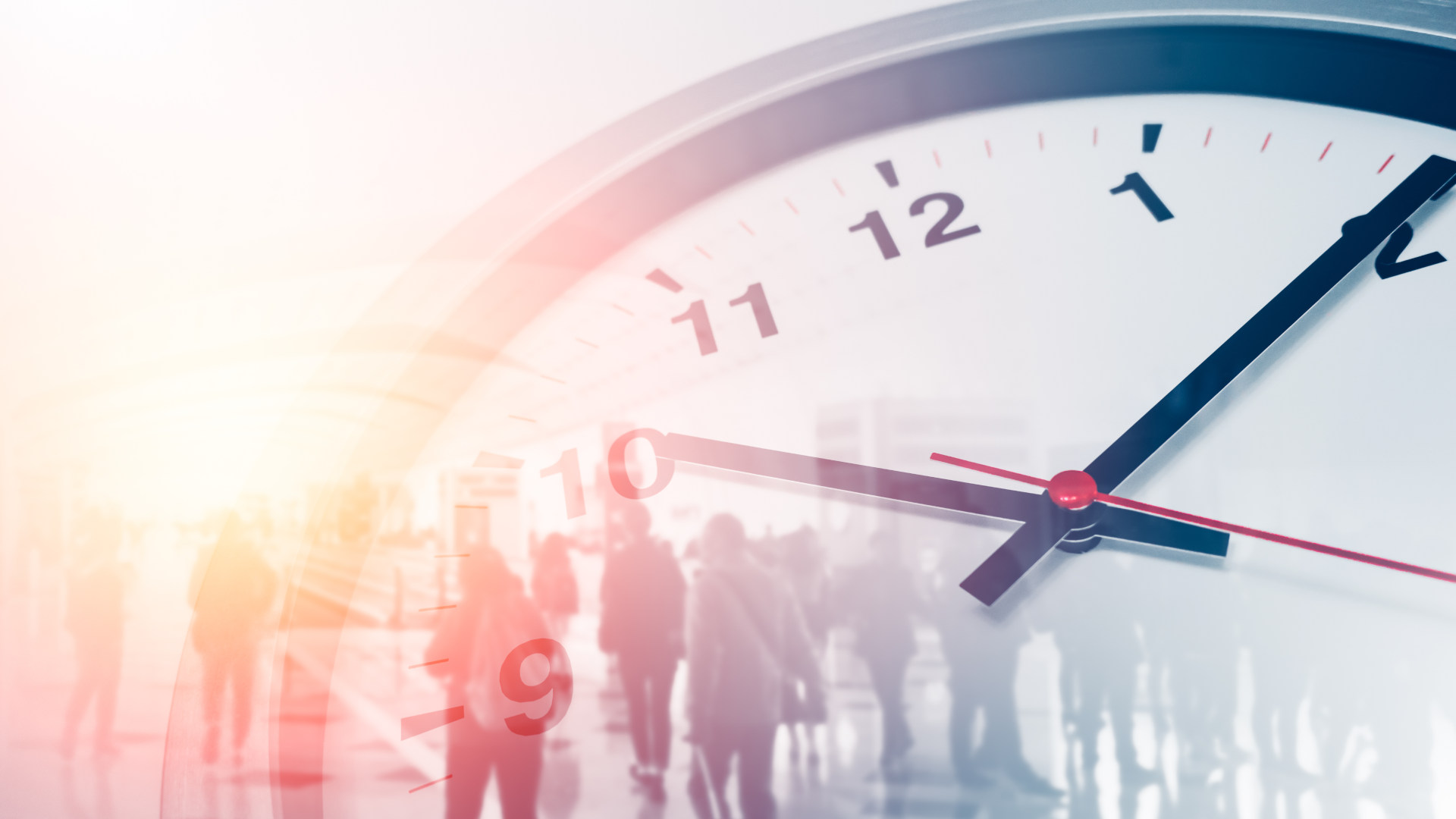Grab your cheat sheet |
Testosterone is an essential hormone for men, linked to physical, mental and sexual health. So it’s no surprise that low testosterone can have severe physical and psychological consequences in men.
But what are some of the things you should look out for?
It can be difficult to pinpoint exactly why we’re not feeling our best, and it can be attributed to different factors.
So in this article, we’re exploring some of the most shocking yet common symptoms experienced by men with low testosterone or testosterone deficiency - so that you can self-diagnose (or at least know to get a blood test).
Once you know if your testosterone levels are low, you can take steps to increase them via the various recovery options available.
What is testosterone?
Testosterone is an essential hormone in men, playing a pivotal role in developing male sexual characteristics and sexual function. It also helps maintain muscle mass, bone density, and red blood cell levels.
When testosterone levels are low, it can lead to a condition known as male hypogonadism or Low T. Low testosterone levels can significantly impact a man's quality of life and have serious long-term effects.
What counts as ‘low’ testosterone levels?
As men age, testosterone levels naturally drop, usually as they reach their 30s and beyond.
But what are normal levels of testosterone?
The optimal range of testosterone for men is between 300 to 1,000 nanograms per deciliter (ng/dL) or 10 to 35 nanomoles per liter (nmol/L).
Anything below 300 nanograms per deciliter (ng/dL) for adults is considered low.
Although the symptoms are a giveaway that something is not quite right, it’s essential to test levels, and we recommend testing regularly to ensure levels are right.
Common Low Testosterone Symptoms
So what should you be looking for?
How do you know if your testosterone levels might be a little low?
How low testosterone levels display may vary from person to person, but there are some common signs to look out for.
- Low sex drive
- Erectile dysfunction
- Low energy levels
- Decreased muscle mass
- Loss of body hair
- Hot flashes
- Changes in mood
- Difficulty concentrating
If you experience any of the following symptoms, it may be a sign that you have low testosterone levels. You must speak with your doctor to determine if low testosterone is the cause if you experience any of these.
Physical Symptoms of Low Testosterone Levels
The physical symptoms of low testosterone are some of the most noticeable and often what make men sit up and take notice.
After years of feeling their best, men might have decreased muscle mass, finding it more difficult to stay active or build muscle in the gym. It can also lead to increased body fat, especially around the abdomen.
Low testosterone can also cause a decrease in body hair, as well as changes in skin texture. Men with low testosterone may also experience hot flashes and night sweats.

Psychological Symptoms of Low Testosterone
Low testosterone can also affect a man's mental health and can lead to low mood, anxiety, mood swings and even depression.
Men with low testosterone may also experience low self-esteem, decreased motivation, and a lack of interest in activities they once enjoyed.
This is often compounded by the physical side effects of low testosterone, which can leave men feeling low if they don’t understand why it’s happening.
How to Diagnose Low Testosterone
Do these symptoms sound familiar?
If they do, the first step you take should be to speak to a Physician. Your doctor will perform a physical; examination and may order blood tests to measure your testosterone levels.

If your levels are low, your doctor may order additional tests to determine the cause of the problem and rule out any other more serious factors.
Treatment - Testosterone Replacement Therapy
Once the cause of the low testosterone is determined, your doctor will recommend a treatment plan.
Treatment option for Low T varies depending on the cause but may include hormone or testosterone replacement therapy (TRT). These treatments can help restore normal testosterone levels, alleviate symptoms, and improve quality of life.
However, the side effects of testosterone replacement therapy can be fairly brutal, and so it’s usually only prescribed in serious cases.
Instead, lifestyle changes, including diet, exercise and supplements, are often the first port of call to alleviate the symptoms of low testosterone. This allows you to boost testosterone levels while ensuring that there are no nasty side effects.
Increasing testosterone through diet and exercise…
In addition to hormone replacement therapy, it is essential to make lifestyle changes to help manage the symptoms.
Eating a balanced diet, regular exercise, and reducing stress can all help to improve testosterone levels.

Eating foods high in zinc and magnesium, such as oysters, spinach, and nuts, can also help increase testosterone levels. Equally important is to understand the food that can kill testosterone levels, such as dairy, vegetable oils and processed meats.
In addition, exercise, particularly those that help build muscle, such as weight lifting and resistance training, can help improve testosterone levels and alleviate some of the physical symptoms.
Supplements for Low Testosterone
But diet and exercise aren’t your only options…
In addition to diet and exercise, some supplements can help to increase testosterone levels.
Supplementing with vitamins and minerals such as zinc, magnesium, and vitamin D can help to boost testosterone levels. Herbal supplements such as Tribulus Terrestris and ashwagandha can also be helpful.
Testoprime is a natural testosterone booster containing twelve ingredients to increase testosterone levels - including Vitamin D, Zinc, Green Tea Extract, and many more. Supplements don’t replace a good diet or exercise, but they are a good way to amplify the impact and help ensure you are getting all the nutrients you need to boost testosterone levels.
If you have any concerns about taking supplements, it would be best to speak to your physician before - however, most have very little if any, reported side effects.
How do you know if your testosterone levels are low?
Low testosterone can have a significant impact on a man's life, and it can cause physical and psychological symptoms, as well as long-term health consequences. Although testosterone levels naturally decline over time, there are ways to ensure that they stay relatively stable and high throughout life.
So, how do you know that you’ve got low T levels?
Low sex drive, decrease in muscle mass, low mood and low energy levels are a giveaway that you might have low levels.
If you experience symptoms of low testosterone, it is crucial to speak with your doctor as soon as possible. Treatment options such as testosterone replacement therapy and lifestyle changes can help manage Low T symptoms and improve quality of life.
However, an intervention of diet, exercise and supplements is often enough to increase testosterone levels. Testoprime is a natural supplement that boosts testosterone and energy levels without medical intervention.
FAQs
-
What are the symptoms of low testosterone in men? Answer: Symptoms of low testosterone in men include low sex drive, erectile dysfunction, fatigue, decreased muscle mass and strength, increased body fat, and hair loss.
-
What can cause low testosterone levels in men? Answer: Low testosterone levels can be caused by a variety of factors such as aging, obesity, chronic illness, certain medications, and genetics.
-
How is low testosterone diagnosed? Answer: Low testosterone is diagnosed through a blood test that measures the amount of hormone in the bloodstream.
-
Can low testosterone be treated? Answer: Yes, low testosterone can be treated with hormone replacement therapy (HRT), lifestyle changes such as weight loss and exercise, and medication.
-
Is HRT safe for treating low testosterone? Answer: HRT is generally safe when prescribed and monitored by a qualified healthcare provider. However, it may carry some risks such as an increased risk of prostate cancer and cardiovascular disease.
-
How long does it take to see results from HRT for low testosterone? Answer: Results from HRT for low testosterone vary from person to person but typically begin to appear within 3-6 months of beginning treatment.
-
Can natural remedies like supplements or diet help increase testosterone levels? Answer: Some natural remedies like certain supplements or dietary changes may help increase testosterone levels slightly but they have not been proven effective in treating clinically low levels of the hormone.
-
Are there any lifestyle changes I can make to increase my testosterone levels naturally? Answer: Yes, adopting healthy lifestyle habits like regular exercise, eating a balanced diet rich in protein and healthy fats, reducing stress levels, getting enough sleep each night, and avoiding smoking and excessive alcohol consumption may help improve your overall health including your hormone balance.





